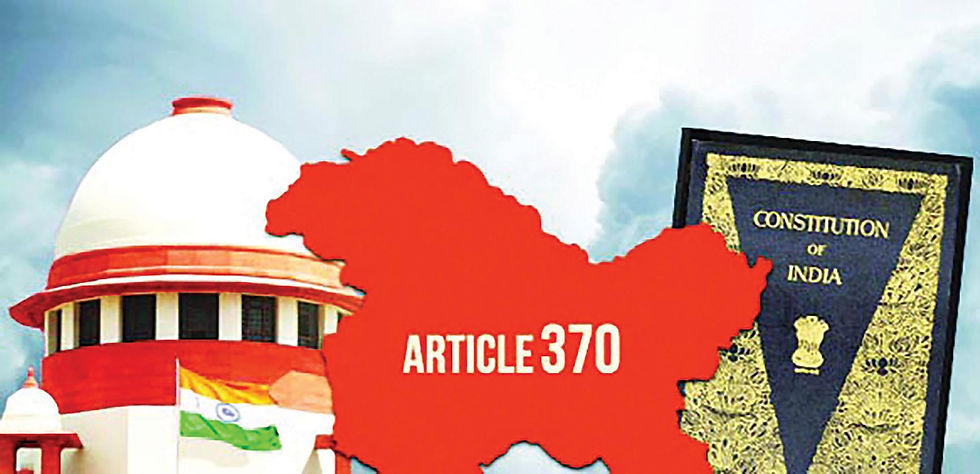
The abrogation of Article 370 in August 2019 marked a significant turning point in Jammu and Kashmir’s journey towards development. Its removal led to its full integration into the Indian Union, paving the way for development programmes. Since then, Jammu and Kashmir has witnessed significant development and growth potential driven by new infrastructure, investment schemes, and employment programmes driven by the Central government.
Why was the abrogation of Article 370 important?
The case against Article 370 is supported by several key arguments:
National Integration: Article 370 fostered a sense of separatism rather than integration. Removing it aimed to fully integrate the state with the Indian Union, ending its special status and fostering unity and equality across all states.
Elimination of dual citizenship: Under Article 370, residents of Jammu and Kashmir had dual citizenship, which contributed to a sense of alienation.
Constitutional Uniformity: Article 370 disrupted India’s legal and constitutional uniformity. To ensure equality and consistency, the same laws should govern all states and have the same relationship with the Central Government.
Economic Development:
• Investments and growth: The special status hindered economic development by restricting property ownership and investments. Removing these restrictions has encouraged investments and job opportunities in the region.
• Development Schemes Following the abrogation, the Central Government has extended National Development Schemes and welfare programmes to Jammu and Kashmir, thereby enhancing healthcare, infrastructure, and education.
• Security and Stability: Frequent unrest and insecurity have deterred tourists and investors. Since the abrogation of Article 370, Jammu and Kashmir has become a more peaceful, stable, and secure state, attracting tourists and investors.
Growth in Industries and Trade: The government has introduced plans to establish special economic zones and industrial parks, which will lead to significant growth in trade and manufacturing sectors.
Infrastructure Development:
• Roads and Transportation: The government has invested in the construction and improvement of roads, railways, and airports promoting economic growth and improving the overall quality of life for residents.
• Water supply and electricity: New power projects and water supply schemes have been introduced, enhancing the residents’ living standards.
Education and Healthcare Services: New schools, colleges, and universities have been opened, and existing institutions have been upgraded. New hospitals and health centres have been established, providing better medical facilities.
Empowerment of Women and Youth: Special programs are being implemented to empower women and youth, providing better education, employment opportunities, and promoting entrepreneurship to enhance their economic status.
Cultural Preservation and Heritage Conservation: Efforts have been made to preserve and promote tourism through the rich cultural heritage of Jammu and Kashmir by organizing cultural festivals, exhibitions, and events.
Temporary Nature: Originally intended as a temporary provision, critics believed Article 370 outlived its purpose as circumstances changed, rendering it obsolete.
Environmental Conservation and Sustainable Development: The special status limited the flow of capital and hindered the implementation of central laws.
The abrogation of Article 370 is crucial for future development and a step towards greater national integration. It also paves the way for uniform, legal, and constitutional governance across all states, promoting equality and consistency. Economically, it opens the region to investments. Politically, it contributes to a more peaceful environment. In the long run, these changes are expected to bring about greater social and economic progress, ensuring a brighter future for the people of Jammu and Kashmir, and strengthening the nation.
Anyone who argues against the abrogation of Article 370 should understand that common citizens desire safety, security, food, a stable livelihood, and a better future for their children.
Jai Hind!
The writer is a politician from Jammu. Views personal

Kommentare